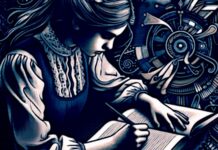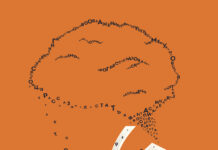“Studies show that self-help books can resolve readers’ depressed moods, change ingrained thought patterns, and instill a renewed zest for life – as long as the advice within is scientifically sound,” Elizabeth Svoboda writes for Aeon. “The literature we choose to guide us should supply proven advice we can trust. But it should also, as Franz Kafka wrote, be ‘the axe for the frozen sea within us’, bludgeoning us in ways that awaken us to the extraordinary.”
-
The link does not lead to the article!
-
-
Sorry about that link error. It is repaired now. Thank you Donna!
-
Elizabeth Svoboda writes for Aeon. “The literature we choose to guide us should supply proven advice we can trust. But it should also, as Franz Kafka wrote, be ‘the axe for the frozen sea within us’, bludgeoning us in ways that awaken us to the extraordinary.”
A frozen sea which Buddhist, experiential philosophy describes in one word, Void. Or that point at the bottom of the nervous system reactivity, described as flight/fight/freeze, when one manges, after much practice. to stop thinking. A point in time and space, which can spontaneously alter the habituated nature of one’s personal evolution, in my experience.
While; Reading be More Effective than Medication or Therapy, if we, as Joseph Campbell advises, “read the right books by the right authors.” Books like The Polyvagal Theory, in which the explanation of our nervous system motivation, brings an inverted triangular, embodied awareness to Abraham Maslow’s, triangular hierarchy of human needs. While reading Stephen Porges alongside Peter Levine, brought me an embodied awareness of an innate capacity to heal overwhelming experience.
While, in terms of our mind’s sense of duality, one may contemplate a dual “mind-body” process of “self-affectation” through the act of reading these very words. As Brain Massumi explains, of our constant embodied process of Movement, Affect, Sensation:
There is no thought that is not accompanied by a physical sensation of effort or agitation (if only a knitting of the brows, a pursing of the lips, or a quickening of heartbeat). This sensation, which may be muscular (proprioceptive), tactile, or visceral is backgrounded. This doesn’t mean it disappears into the background. It means that it appears as the background against which the conscious thought stands out: its felt environment. The accompanying sensation encompasses the thought that detaches itself from it. Reading, however cerebral it may be, does not entirely think out sensation. It is not purified of it. A knitting of the brows or pursing of the lips is a self-referential action. Its sensation is a turning in on itself of the body’s activity, so that the action is not extended toward an object but knots at its point of emergence: rises and subsides into its own incipiency, in the same movement. The acts of attention performed during reading are forms of incipient action. (Massumi, 2002) Copied from: Massumi, Brian. Parables for the Virtual: Movement, Affect, Sensation (Post-Contemporary Interventions) Duke University Press. Kindle Edition.
Through such “attention” to how our body creates our mind, we can transcend the delusion that we know ourselves, simply because we can speak, read and write, words.
-
Aeon is such a fantastic website.
Every few weeks they have an interesting article about mental health or psychiatry, plus loads of other fascinating topics.
Here is my favorite article from the site – about the question of how long humanity will likely survive over the next billion years –
https://aeon.co/essays/will-humans-be-around-in-a-billion-years-or-a-trillion














